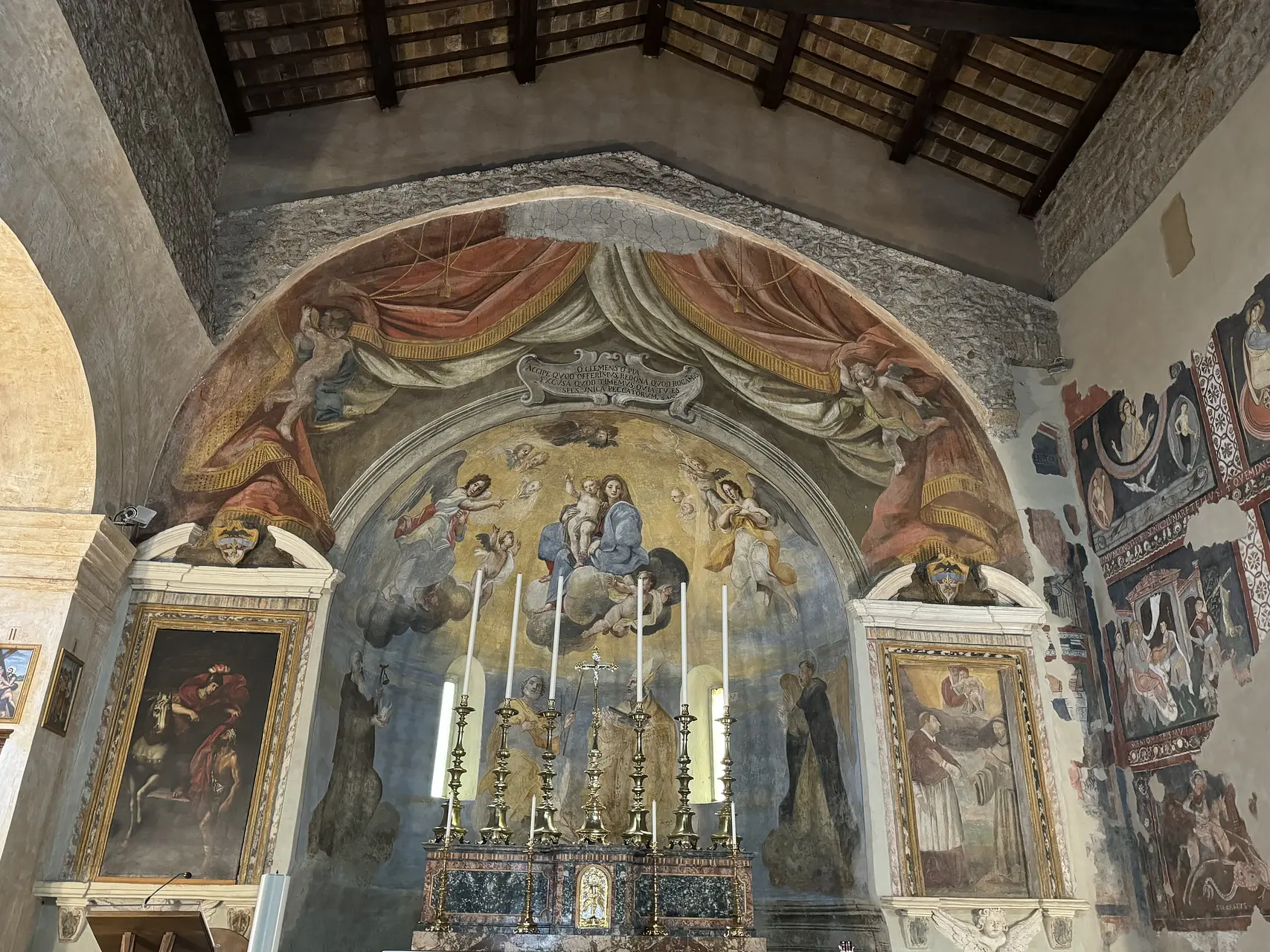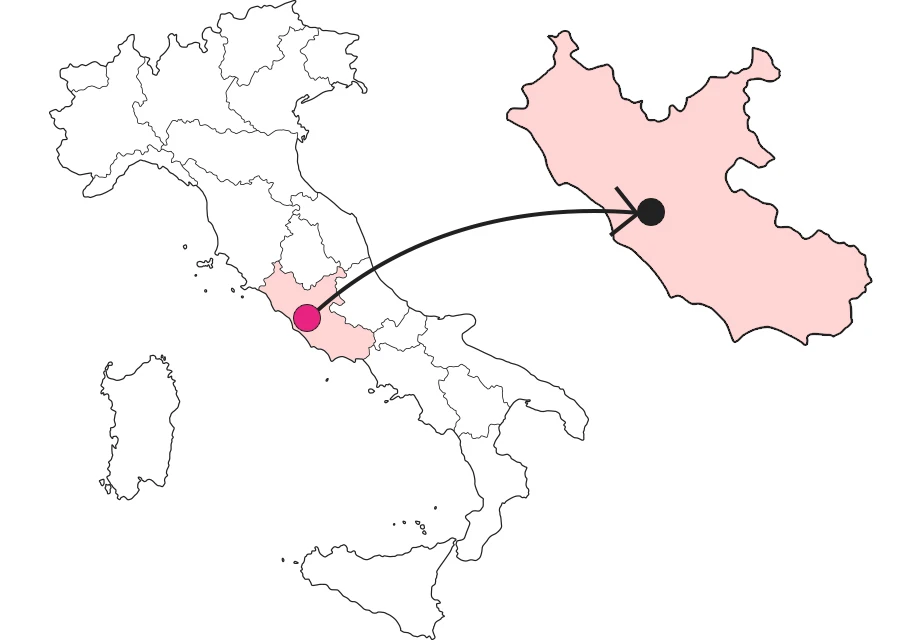SHARRYLAND


Church of Our Lady of Ceri
A jewel made of medieval frescoes, images of Our Lady and relics of St. Felix II


Where is

What is it and where is the Church of Our Lady of Ceri
Nestled in the charming medieval village of Ceri, the Church of the Immaculate Conception of Ceri is a precious example of sacred architecture dating back to the 4th century, with significant extensions occurring in the Middle Ages. This church is a place of great Marian devotion, and is also known for its artistic value for the splendid frescoes that decorate the apse and side walls. In this church, Our Lady is not alone: St. Felix II, whose relics are kept inside the church, is also worshipped here.
Why it is special: the wonderful frescoes.
When one enters the interior of the Church of Our Lady of Ceri, one is immediately struck by the beauty of its frescoes: before one's eyes is the apse, with a Madonna and Child seated on clouds and supported by angels silhouetted against a brightly lit sky. The scene is framed by ever-painted curtains, which seem to want to reveal the church's most precious scene. However, the gaze soon shifts to the right wall, where older frescoes recount biblical episodes in several panes.
Don't miss: curiosities about the walls and floor
The rich decorative apparatus of the church of Ceri reserves some truly surprising details for the most attentive observers. Perhaps the most picturesque are some very particular scenes in the frescoes: kitchen scenes, devils fighting and chimera figures. More classic but an object of great devotion in the inhabitants is the painting of the Madonna, which is located inside the chapel dedicated to her. To observe the last major feature, one must lower one's gaze to the
A bit of history
The Church of Our Lady of Ceri was built over an older core, probably around the 4th century, as a place of Christian worship. Over time, the church underwent various transformations, especially in the 12th century, when medieval frescoes were added. Later, in the 16th century, the church suffered damage during attacks by Duke Valentino Borgia, leading to the collapse of part of the structure and the construction of the three side chapels. The connection with Felice II, whose relics are preserved inside the church, was very strong, so much so that the church remained dedicated to him until the 1800s.
Fun fact: Felix II and his relics.
Felix II is said to have died right here in Ceri, which is why his relics are kept inside the beautiful church. Apparently, however, they had to be transferred to Rome at some point. According to one legend, the oxen pulling the cart inexplicably stopped, refusing to continue. Interpreted as a divine sign, the miracle caused the relics to remain in the village, where they are still guarded with great veneration today. This event is remembered in local tradition and strengthens the bond between the community and the figure of St. Felix.
Enter the Map of Italy's Undiscovered Wonders and find treasures where you least expect it... Inspire, Recommend, Share...
Collections
The Map thanks:
Enter the Map of Italy's Undiscovered Wonders and find treasures where you least expect it... Inspire, Recommend, Share...
Where is

Collections

